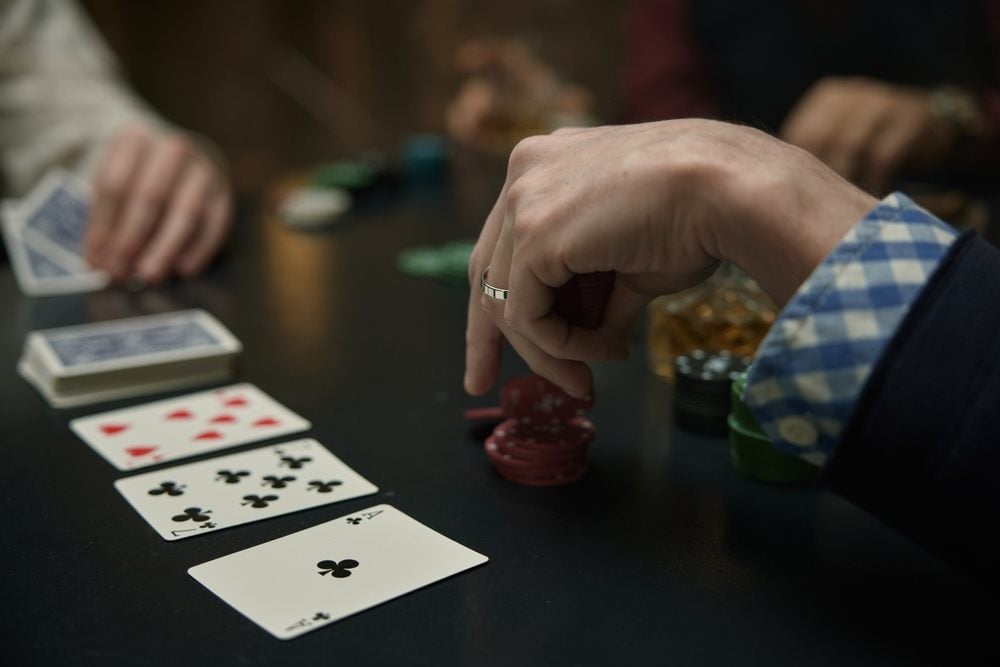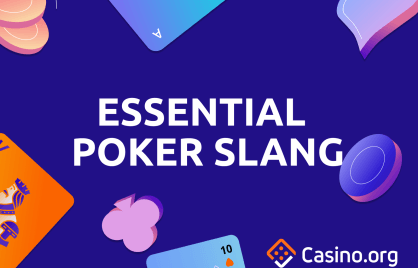Understanding Identity Tilt in Poker: How to Separate Self-Worth from Results

Summarize this post
Understanding Identity Tilt in Poker: What You’ll Learn
- Understanding Identity Tilt: Discover what identity tilt is and how it affects your performance and self-worth in poker.
- Recognizing Symptoms: Identify the signs that indicate you’re experiencing identity tilt, helping you become more aware of its impact on your game.
- Strategies to Overcome Tilt: Learn practical strategies to separate your self-worth from your poker results, including shifting your focus from outcomes to decision-making.
- Building a Healthier Poker Identity: Explore ways to develop a stable poker identity rooted in controllable attributes, helping you remain resilient amidst the game’s fluctuations.
- Utilizing Reset Tools: Gain insights into effective reset tools like journaling and peer support that can help manage emotions and enhance your poker mindset.
Every poker player experiences the highs and lows that accompany the game. Winning sessions bring exhilaration and confidence, while losing sessions can sting for days.
This emotional journey is a normal part of the game, but for some players, the swings cut much deeper. A bad run doesn’t just hurt the bankroll; it feels like an indictment of who they are as a person and a player.
This phenomenon is known as identity tilt, which occurs when your sense of self-worth becomes tied to your poker results. When you win, you feel capable and strong.
Conversely, a loss can leave you feeling worthless, even if you played well. Understanding how to win at poker involves recognizing identity tilt, as it exacerbates the emotional rollercoaster of the game and makes variance almost unbearable.
But What Can You do About It?
Many poker tournament grinders experience identity tilt firsthand; they may run deep in a tournament only to bust just shy of the money, leading to shame and self-doubt. A cash game player may hide losses from friends, viewing them not just as losses but as a personal failure.
Rather than simply battling the cards, these players fight the weight of having their entire identity on the line every time they sit down.
The good news is that identity tilt isn’t a permanent condition. By learning how to win at poker without tying your self-worth to your results, you can approach the game with renewed confidence and resilience.
This article will unpack identity tilt, explain why it is so common in poker, and, most importantly, offer strategies on how to achieve success in poker by separating your self-worth from your results.

Image Credit: Nomad_Soul/Shutterstock
What Is Identity Tilt?
Most players view tilt as a reaction to a specific poker hand. However, identity tilt runs much deeper. It’s not about one hand or one session; it’s the outcome of fusing your self-worth with your poker results.
Knowing how to win at poker means understanding when you’re slipping into identity tilt. You may find you’re falling into this pattern if you recognize some of the following signs:
- After a downswing, you don’t just feel frustrated—you feel ashamed.
- Your confidence hinges solely on your winning streaks.
- You avoid sharing results or hands with peers when you’re on a downswing.
- You constantly compare your performance to other players’ results.
Identity tilt can often disguise itself as ambition. A strong desire to win can push you to care deeply about results, but it ultimately fosters fragility. Instead of being grounded in your process and growth, your confidence fluctuates alongside your poker bankroll.
Why We Tie Self-Worth to Results
Poker is uniquely designed to blur the line between performance and identity. In this game, where every result is public and measurable, it’s easy for players to allow outcomes to define who they are. This is particularly detrimental when considering how to win at poker, as emotional ties to results can cloud decision-making.
Many of us have been conditioned to equate achievement with worth from an early age. In poker, this tendency is amplified by the constant feedback from wins and losses. Win a session, and you feel validated; lose, and it feels like rejection.
The pressure to showcase results is compounded by societal expectations. Ask anyone about your poker journey, and the first question is often, “So, how much are you up?” This belief reinforces the idea that your worth as a player can be summarized by a single figure.
The psychological impact of variance in poker is also significant. A handful of losing sessions might feel overwhelmingly negative, despite a longer-term positive trajectory. This amalgamation of variance, visibility, cultural reinforcement, and cognitive bias creates an environment ripe for identity tilt, hindering your understanding of how to win at poker.
The Costs of Identity Tilt
At first glance, identity tilt can seem like intrinsic motivation. You care deeply about results, push yourself hard, and celebrate wins. But over time, tying your self-worth to outcomes creates enormous emotional costs.
The Emotional Rollercoaster
When wins boost your confidence while losses leave you feeling worthless, your mood fluctuates as wildly as your bankroll. A small winning streak can elevate your spirits, while a week of losses can crush your confidence. To stay focused on how to win at poker, you must learn to manage these emotional swings effectively.
Distorted Decision-Making
When your worth feels on the line, your decisions shift from logical betting choices to actions driven by the need for validation. Some players chase big bluffs to “prove” their courage, while others shy away from marginal spots due to the fear of failure. This shifting focus increases the likelihood of mistakes.
Burnout
Carrying the emotional weight of identity tilt during every session can lead to burnout. If each loss feels like a personal failure, the game rapidly transforms into an emotional burden. Many skilled players don’t walk away because of lack of ability; they quit because the emotional toll of identity tilt makes the game too heavy to bear.
Spillover into Life
Identity tilt doesn’t stay confined to the poker table. Emotional swings can spill over into personal relationships, work, and daily life. A losing session may result in irritability with loved ones or distractions at work, further complicating your journey on how to win at poker.

Image Credit: Nomad_Soul/Shutterstock
How to Separate Self-Worth from Results
The encouraging news is that identity tilt can be addressed. With the right strategies, you can detach your sense of self-worth from poker outcomes. This doesn’t mean results are unimportant—they matter for your bankroll and goals—but they won’t dictate your value.
Shift Your Metrics from Outcome to Process
Instead of asking, “Did I win today?” focus on whether you made disciplined decisions or adhered to your game plan. Wins and losses are outside your control, but the quality of your decisions is not. For example, a tournament player I worked with rated their decision-making on a scale of 1 to 10 after each session. Even through a downswing, they often reported feeling competent based on their process, reinforcing the idea that skills persist regardless of outcomes.
Adopt Multiple Identities
If you define yourself solely as a poker player, every result takes on added significance. By identifying as a learner, competitor, or friend, you can lessen the impact of any single outcome, allowing you to explore how to win at poker without feeling overly burdened by expectation.
Reframe Variance
Understand that variance is an integral aspect of poker. A downswing doesn’t signify that you’re a poor player; it simply reveals that the math is at work. Reminding yourself of this truth can help keep your self-worth distinct from your results.
Use Language Carefully
The language you use when reflecting on your performance can significantly impact your mindset. Instead of saying “I’m terrible,” which ties your identity to results, shift to “I made a mistake in that hand.” This approach promotes growth and self-improvement without damaging your self-worth.
Building a Healthier Poker Identity
If identity tilt stems from associating your worth with results, the antidote involves cultivating an identity centered on controllable qualities and processes. Rather than measuring yourself by wins and losses, focus on traits and habits that reflect your dedication and growth, which is essential to knowing how to win at poker.
Focus on Controllable Traits
Successful players take pride in their discipline, curiosity, resilience, and work ethic. These qualities are well within your control. While you can’t dictate whether your aces hold up, you can ensure that you prepared appropriately, maintained focus, and managed your emotional responses.
Celebrate Consistency
Acknowledge and celebrate smaller victories, including your commitment to poker. Did you adhere to your study routine? Did you play intentionally even when fatigued? These accomplishments are significant and worthy of recognition, as consistent effort often reaps greater rewards than a single lucky streak.
Expand Beyond Poker
Cultivating a healthier identity means not allowing poker to dominate your sense of self. Engaging in hobbies, nurturing relationships, and pursuing goals outside of poker creates balance. This well-roundedness helps mitigate the emotional strain of downswings and amplifies the enjoyment of wins.
When you ground your identity in efforts and character rather than just results, you foster stability. While wins and losses will regularly fluctuate, your self-worth can remain unwavering. This steadiness is what empowers you to approach the table with unshakeable confidence, no matter how the cards unfold.

Image Credit: Nomad_Soul/Shutterstock
Practical Reset Tools for Identity Tilt
Even with an understanding of identity tilt, it can still emerge unexpectedly. Employing simple reset tools can help break this cycle and assist you in regaining focus.
Journaling Prompts
Redirect your attention away from outcomes through structured reflection. Ask yourself:
- What went well in my process today?
- What did I learn that will enhance my approach next time?
- Where did emotions creep in, and how can I manage them differently?
This shift from results to personal growth can help ease the grip of identity tilt.
Peer Support
Talking about both wins and losses with trusted peers normalizes variance. If you only share during winning streaks, you reinforce the notion that losing is shameful. By discussing downswings openly, you remind yourself—and hear from others—that variance is a common aspect of poker.
Separate Emotional Time from Analytical Time
Following a session, emotions may be heightened. It’s unwise to engage in deep analysis immediately. Instead, jot down quick notes, step away, and revisit your insights the next day with a clearer perspective. This practice helps differentiate emotional responses from objective evaluations.

Image Credit: Nomad_Soul/Shutterstock
Untilt Yourself to Win More
Poker will always provoke a wide array of emotions. Wins validate your efforts, losses can sting, and variance challenges even the most resilient minds. However, when your self-worth becomes entangled with these results, the game shifts from an opportunity for growth to a verdict on your identity. Identity tilt represents one of the most serious psychological traps that a player can encounter.
The good news is that identity tilt can be resolved. By focusing on the process rather than the outcome, embracing multiple identities, and rooting your confidence in controllable traits, you can establish a stable foundation that remains steady despite the inevitable swings of variance. Tools like journaling, peer support, and structured resets can help build habits that reinforce your value beyond numerical results.
Remember, you are not defined by your last session or current bankroll. You are a player dedicated to learning, growing, and enhancing skills that will last far longer than any downswing. By understanding how to win at poker and implementing these strategies, you can foster a healthier relationship with the game.
Title Image Credit: Nomad_Soul/Shutterstock


